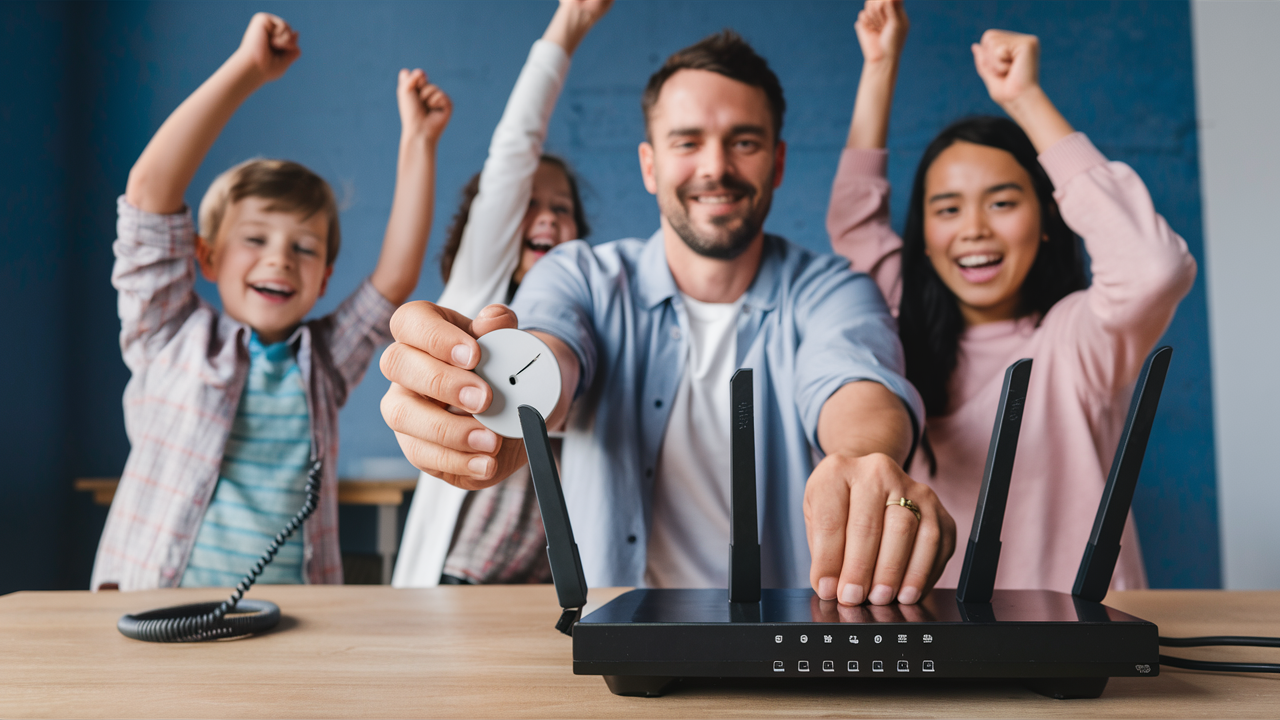Will my internet work without a landline?

Today, there are many homes that no longer possess a landline phone, and instead, depend on mobile phones for their voice calls. Although using a landline is quite costly, some people fear that they will be forced to let go of a stable internet connection. Fortunately for us, that is not always true! Thus, there are several possible ways of gaining access to the Internet without having a dial-up telephone line.
How to Obtain High-Speed Internet Connection Without a Phone Line
For home internet access, you have a few options: Cable internet service, digital subscriber line or DSL, satellite, fixed wireless and mobile broadband, or hotspots. Let's explore each of these without a landline phone line.
- Cable Internet: Almost all cable operators now provide broadband internet which uses the same coaxial cables used for cable television. At times speeds are 100+ Mbps. Cable internet does not require a phone line; the coax connection is independent of the telephone line. For this reason, you can cancel your home phone but maintain a fast cable internet connection.
- DSL Internet: A DSL employs the telephone copper wires for carrying out the internet connection, which can be typically 5-100+ Mbps depending on the kind. Originally, DSL necessitated the use of a telephone line since it draws its connection from phone lines. However, the majority of the large telecommunications providers present today offer what is called “Naked DSL,” which is an Internet service without a voice plan. This way you can get DSL speeds without having to pay for the actual use of the landline service.
- Satellite Internet: Satellite internet service providers transmit signals through satellites in outer space and bring Internet connection to your home. Speeds can be lower with more traditional packages ranging from 15 to 35 Mbps on average. However, the satellite can be brought into a home with no phone connection, which makes it a viable choice for a rural family that does not have cable or DSL. Currently, there are companies such as Viasat and HughesNet that provide satellite internet without the need for a phone line.
- Fixed Wireless Internet: Some providers provide internet connection by beaming signals from towers to a fixed receiver in your household. This is still an evolving technology that offers download and upload speeds ranging from 25-100+ Mbps depending on the distance. Similar to satellite, fixed wireless internet does not depend on a telephone line for the connection. Fixed wireless broadband service is being deployed by regional as well as rural ISPs in many parts of the country.
- Mobile Broadband: Mobile hotspots from cellular providers are portable Wi-Fi that can be accessed almost anywhere you go by using your smartphone’s data or a separate device. Speeds depend on the coverage that is provided by the mobile networks in your region. It offers an internet connection though not very suitable for home use with loads of data, it does not require any fixed telephone line or cable connection.
Here are some points to ponder when taking the landline-less route
Lack of a landline phone line gives much freedom and helps reduce the amount of monthly expenses. However, some considerations have to be taken note of about the security, access, and limitations of cell phone dependence. Think through how eliminating your landline may impact you.
- Reliability: While cellular and Internet-based communication can have disruptions of connectivity, the reliability of the copper telephone cable system is not an issue. It is advisable to have an alternative plan if connectivity is an essential factor.
- 911 Access: Mobile phones can dial 911, however, the first responders may not be able to locate you easily. It is also important to remember how addresses are to be registered as well as backup call services.
- Medical Alert Systems: Perhaps some home emergency medical devices may use the landline. Make sure all the services are functioning properly before deciding to cancel phone service.
- Security/Alarm Systems: This meant that home security systems used to rely on landlines to relay signals to the monitoring services. Verify compatibility with cellular systems.
- Limitations of Cell-Only Use: Although most people are using only cell phones in today’s society, mobile coverage is still limited in rural areas. Cells can malfunction and cut off communication with each other.
- Bundling/Pricing: Calls, internet, and cable services often have their prices reduced when bundled together. The loss of your phone line may lead to higher charges for other services that you still use.
Regardless of the reason why you are thinking about canceling your conventional home phone service – saving money, going wireless, avoiding aggravation – you should be aware that you can certainly keep high-speed internet available in your home while not having to keep a landline. Cable broadband and DSL offer internet-only offers where consumers can do away with the landline connection but retain the broadband connection. And other possibilities such as satellites, fixed wireless, or a mobile hotspot provide even more possibilities to connect to the Internet.
As for the backup connectivity, location services, and security systems, you can easily plan and get a comfortable feeling of being protected while gaining all the benefits of the Internet connection without having to pay for a traditional telephone line. Assess the existing resources current to your location, consider the requirements of your household, and make needed decisions on how to turn your home into a smart one that corresponds to the contemporary digital age while taking into consideration aspects such as utility, versatility, and cost!
Upgrade to faster, more reliable AT&T Fiber Internet today! Call us at +1 844-905-5002 and get connected with speeds that keep you ahead.